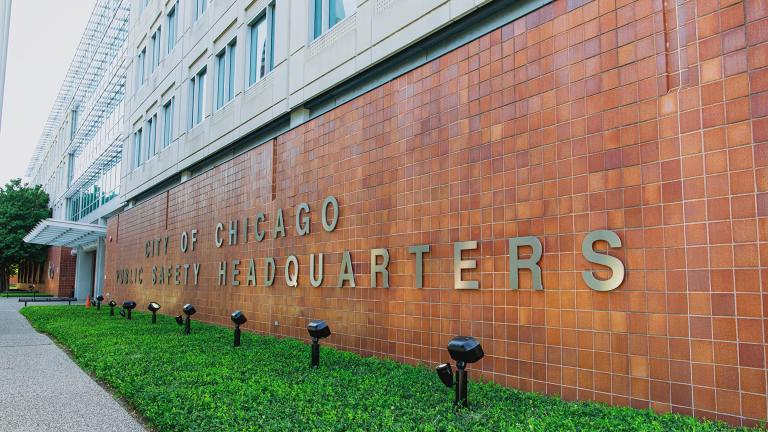The Chicago Police Department continues to miss more reform deadlines than it makes under a federal consent decree, according to a new report, though the city says it has tripled its overall compliance rate.
The latest status report from the Independent Monitoring Team (IMT) overseeing consent decree implementation shows that from March to December 2020, the CPD hit 19 of 43 reporting deadlines. But Independent Monitor Maggie Hickey noted the department has taken steps toward improving overall compliance.
According to the report, the CPD reached some level of compliance with 154 of the 315 requirements assessed during this reporting period. It was out of compliance with 120 requirements, while 41 others remain under assessment.
Mayor Lori Lightfoot on Wednesday said she's “very happy” with the progress made by the CPD, noting that the department's compliance rate is more than three times higher than what it had been in previous reports.
“Even through a pandemic, the police department made up a lot of unfinished business from the previous two reports and then really focused like a laser beam on making sure that they got things a lot of right,” she said.
Hickey’s report is the third of at least 10 semiannual her team will produce over the next five years. This reporting period covered a tumultuous time in Chicago, as the city dealt with the COVID-19 pandemic and a social justice reckoning that included riots and widespread protesting following the police killing of George Floyd in Minneapolis.
The court-enforced overhaul of CPD policies and reforms has been in place for two years. It was prompted by the 2014 murder of Laquan McDonald by Chicago police Officer Jason Van Dyke and a subsequent investigation by the U.S. Department of Justice amid the fallout from that shooting.
Robert Boik, executive director of the CPD’s Office of Constitutional Policing and Reform, said Wednesday that while the department is “by no means doing a victory dance,” there was “significant progress made” during the latest reporting period.
“I think the city of Chicago has waited for a sign of progress for a long time,” he told WTTW News, “and I think the enhancement in the numbers of paragraphs that are now in some level of compliance is a reflection of the hard work that we’re doing on our end to try to answer that call from the city.”
The city said it reached several “accomplishments” during the latest reporting period, including: instituting 32 hours of mandated training for all officers; revamping its use of force dashboard; adding an anti-retaliation policy; and adding the first ever language access coordinator and Americans with Disabilities Act liaison.
One area of improvement in this report centered on the CPD’s efforts to expand community engagement, which Hickey had expressed concerns about in the past.
The IMT found the police department made “more deliberate efforts” to engage with residents, including community focus groups that examined new policies like youth interactions, responses to hate crimes and interactions with people with disabilities.
Still, the monitoring team found that the CPD “continued to struggle to engage with underrepresented communities most impacted by policing.”
In response, Nusrat Choudhury, legal director at the ACLU of Illinois, said the CPD has made “insufficient progress” in reforming policing on the ground as Black and Latino communities “are seeing little, if any, change.”
“Today’s report catalogues once again that the City and Chicago Police Department missed most deadlines — measures required under the consent decree to fix broken policing in a City with a painful history of police violence,” she said in a statement.
Choudhury criticized the CPD’s outreach efforts, saying community engagement is only sought late in the reform process when policies are close to being finalized.
“This is not community engagement,” she said.
Boik pushed back on that notion, saying the CPD does thoroughly review public comments. But he agreed that the department needs to enhance its community engagement.
“There’s no question we also need to think differently about how we’re doing community engagement,” he said. “We can’t expect the community to come to us, we have to go to where the community is and we have to meet them where they’re at. So we have to be aggressive at finding those alternative venues in which we can obtain feedback.”
Illinois Attorney General Kwame Raoul also said that despite the progress outlined in the report, “many urgently needed police reforms,” including those regarding improved accountability and transparency, have not yet been implemented.
Lightfoot responded to Raoul’s criticisms, saying “there is a lot of work that needs to be done also at the state level.”
“It would be good if they also focused on making sure their house is clean,” she said. “There is more work that needs to be done, no one is saying that there isn't. As a whole, we have made significant progress.”
Heather Cherone contributed to this report.
Contact Matt Masterson: @ByMattMasterson | [email protected] | (773) 509-5431








